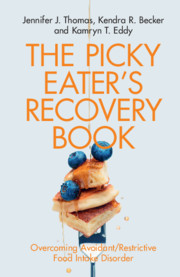Avoidant/restrictive food intake disorder (ARFID) was a new diagnosis in DSM-5 and is due to be included in ICD-11. However, confidence in making the diagnosis seems to be low among clinicians. Furthermore, there is no national consensus on care pathways for ARFID and therefore patients tend to be managed across core child and adolescent mental health services, specialist eating disorder services and paediatric services. If not adequately treated, ARFID can result in stunted growth, nutritional deficiency and impaired psychosocial functioning. Research and guidelines for managing this disorder are scarce, owing to low rates of diagnosis. This article aims to improve clinician confidence in the use of ARFID as a diagnosis and explores current consensus on treatment approaches, in order to progress future service planning for this complex and diverse patient group.
LEARNING OBJECTIVES• Gain an improved knowledge of the diagnostic criteria for ARFID
• Know how to distinguish ARFID from other eating disorders
• Understand the current consensus on treatment approaches for ARFID
DECLARATIONS OF INTERESTNone.
